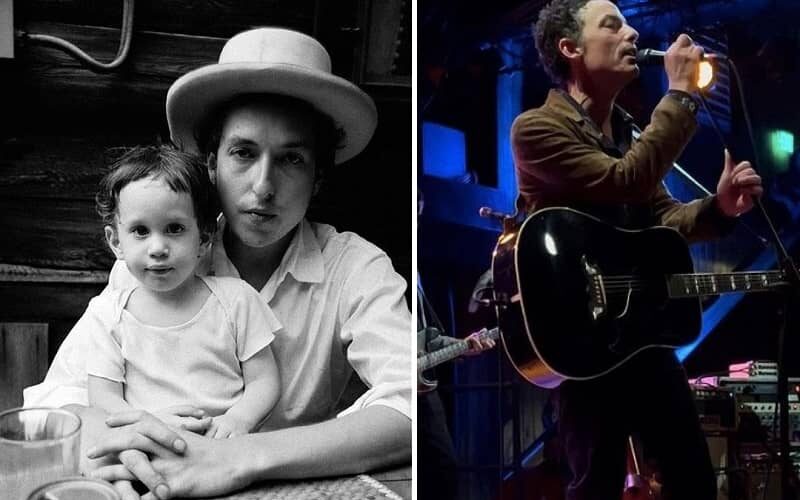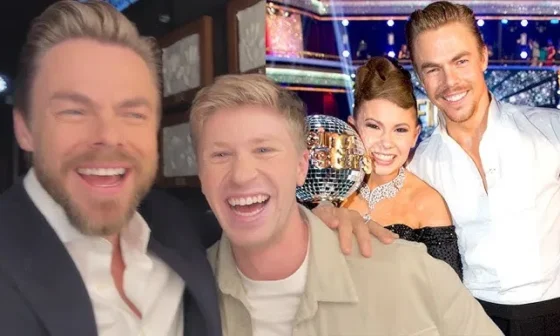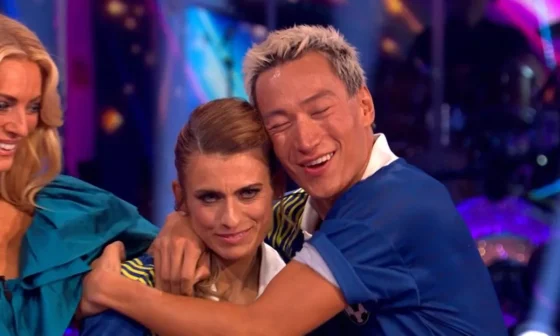The night was meant to honor an album—Blood on the Tracks, Bob Dylan’s landmark of heartbreak and lyrical genius, turning 50. Fans packed New York’s Beacon Theatre expecting poetry, nostalgia, and echoes of the past.
What they got was something no one could have predicted.
A moment that froze time.
No fanfare. No flashing lights. Just a single spotlight.
And out of the shadows stepped Bob Dylan—guitar in one hand, his son’s hand in the other.
“This is Jakob,” he said quietly. “My son. Tonight, we’re going to tell this story… with two voices.”
The Song That Spoke Louder Than Words
Jakob Dylan, frontman of The Wallflowers, had long built his own path away from his father’s towering shadow. The two had rarely shared a stage. Whispers of emotional distance and generational silence surrounded them for years. But now, standing shoulder to shoulder under the stage lights, none of that mattered.
A single chord rang out.
“They sat together in the park…”
Jakob sang the first line of “Simple Twist of Fate”, his voice raw but steady—gentle, aching, sincere. Not a replica of his father’s sound, but a reflection of it.
Then Bob joined in. Weathered, gravelly, and every inch the voice of someone who has lived his lyrics a hundred times over. His delivery wasn’t polished. It was real. And in that honesty, magic happened.
Their duet wasn’t performance—it was conversation. A story passed between generations. Two men, one guitar, and a crowd too stunned to breathe.
No Production. Just Truth.
There were no backing musicians. No elaborate staging. No digital screens. Only silence, and the sound of two lives braided into melody.
At one point, Bob turned toward Jakob—not as a legend, not as a performer, but simply as a father. Jakob met his gaze, and sang stronger.
When they reached the final line—“And wished he’d gone straight…”—they sang it in unison.
Then… silence.
Not a single clap. Just a pause so deep it felt like the world was holding its breath.

Then came the applause. Slow at first. Then a storm.
The crowd rose. Some wiped tears. Others simply stood, stunned. And onstage, Bob Dylan—never known for sentiment—wrapped his son in a quiet, powerful embrace.
It wasn’t dramatic. It wasn’t perfect.
It was human.
Beyond the Music
Later that night, people tried to describe what they’d seen. A performance? A tribute? A farewell?
But for those in the room, it was something else entirely. A reckoning. A healing. A private moment made public—and made unforgettable.
Because in the end, it wasn’t just about Blood on the Tracks.
It wasn’t even just about Simple Twist of Fate.
It was about two men, once separated by legacy and silence, finding their way back to each other.
It was about love. Complicated. Unspoken. Finally… shared.






